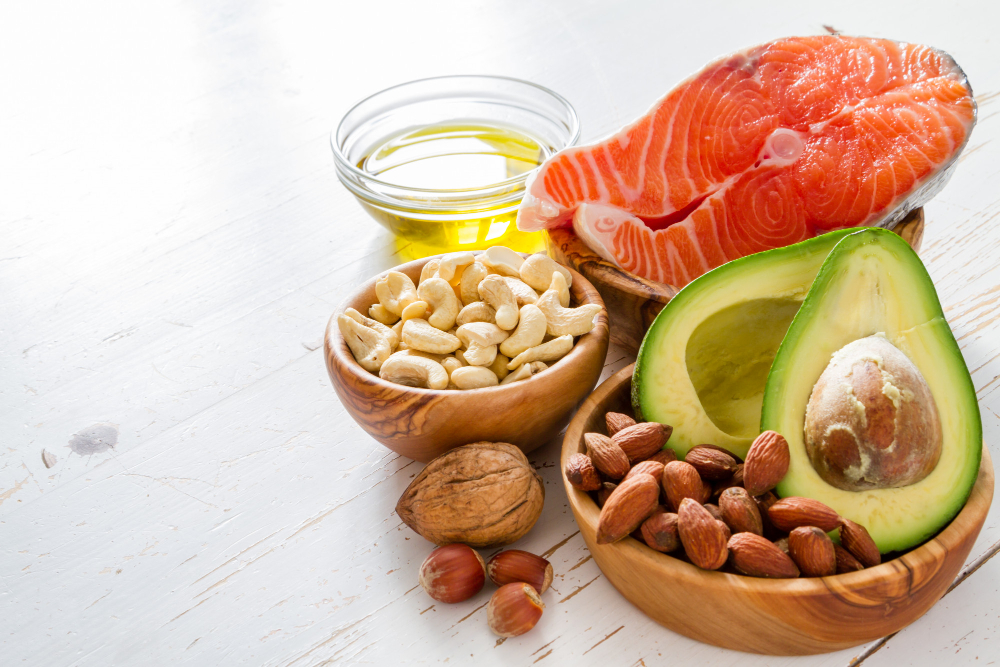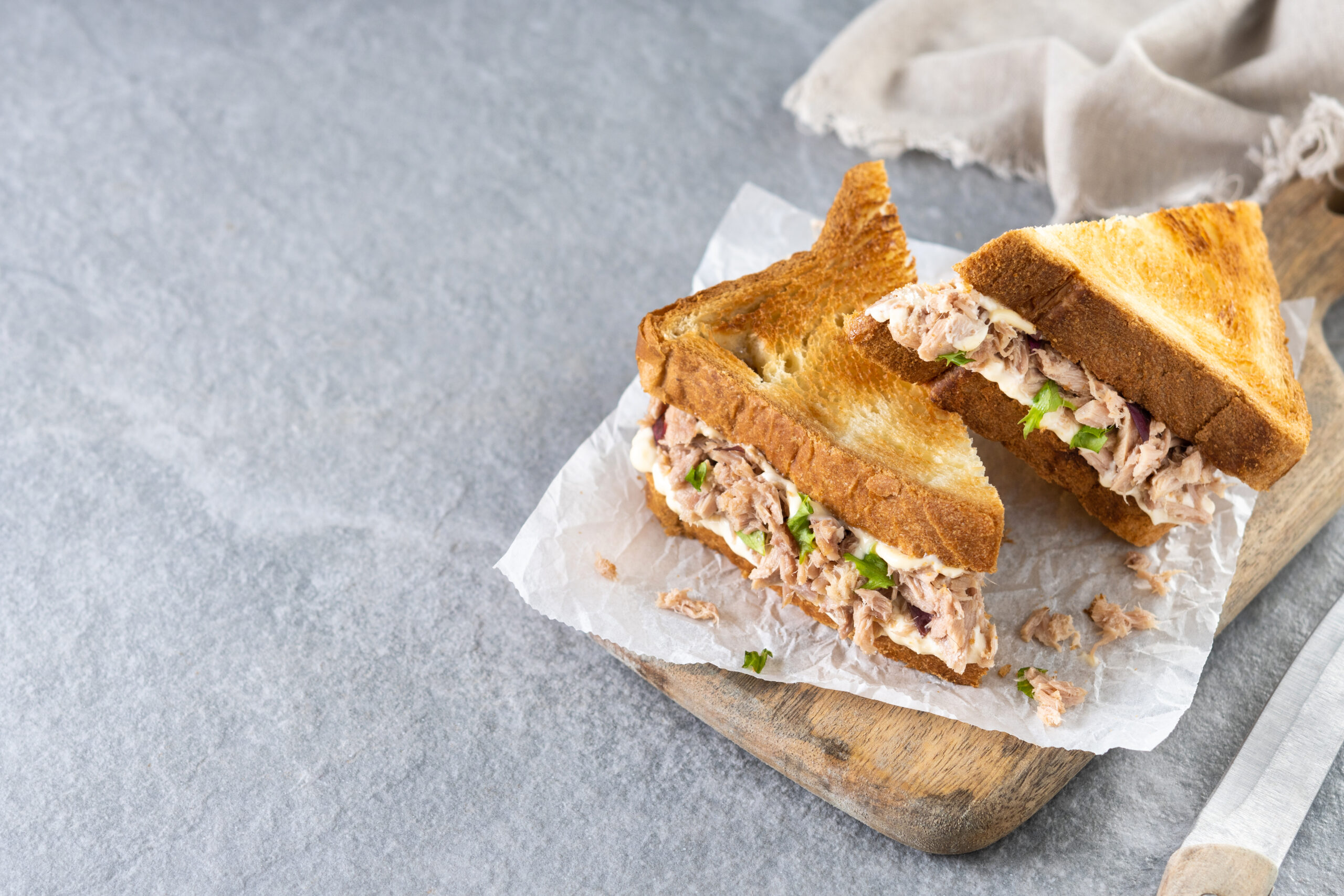With age, our nutritional needs evolve, and eating well becomes more important than ever. While fats have often been misunderstood and labelled as something to avoid, healthy fats are essential for maintaining good health, especially for seniors.
Healthy fats support brain function and help maintain a healthy heart, both of which are crucial for aging well. Keep reading to learn how incorporating the right types of fats into your daily diet can help you maintain energy, mobility, and mental clarity. Plus, we share an easy recipe full of healthy fats!
The Truth About Fats: Not All Are Created Equal
Not all fats are beneficial, and understanding the differences is important to stay healthy.
Healthy fats: Healthy fats can be found in foods like avocados, nuts, seeds, olive oil, and fish such as salmon, tuna, and sardines. These fats can help improve heart health, reduce inflammation, and support cognitive function (help prevent memory loss). Healthy fats also play a vital role in our energy levels and help absorb key vitamins (A, D, E, and K), Incorporating nutrient-dense foods into your diet, such as healthy fats, is a simple yet effective way to take care of your health.

Unhealthy fats: These include trans fats and excessive saturated fats, which are known to raise bad cholesterol levels and increase the risk of heart disease. These types of fats are typically found in processed snacks (pretzels, chocolate, candy), fried foods (potato chips, French fries, fast food), and baked goods (donuts, cakes, cookies) that are made with hydrogenated oils (oils that have been modified to prolong shelf life).
Why Seniors Need Healthy Fats
As the body ages, nutritional choices play an even more critical role in maintaining good health. Healthy fats offer a wide variety of health benefits that support aging. Here’s a closer look at why healthy fats are essential for you as you age:
Heart Health
Heart disease continues to be a significant health concern for seniors. Healthy fats (Omega-3s), especially the kind found in fish, can help prevent the clotting of blood, which reduces the risk of stroke and heart disease.
Reducing Inflammation
Many seniors experience arthritis or other inflammatory conditions. Omega-3 fats contain natural anti-inflammatory properties, which have been found to ease joint pain and stiffness. This means that eating more healthy fats may improve your mobility and comfort.
Protecting the Brain
Memory loss and cognitive decline can become more common as we get older. Omega-3 fats play a major role in maintaining a healthy and active brain.
Nutrient Absorption
Some vitamins, like vitamin D (which is important for bone health), require fat to be fully absorbed. Without enough healthy fat in your diet, you may not get the full benefits of the vitamins you are consuming. This is especially important in Canada, where many seniors don’t get enough vitamin D during the cold winter months.
Easy Ways to Add Healthy Fats to Your Diet
Adding healthy fats to your meals doesn’t have to be hard. Here are some simple tips!
- Cook with heart-healthy oils, like olive or avocado oil instead of butter or margarine.
- Snack on nuts and seeds, like almonds, walnuts, sunflower seeds, or flaxseeds.
- Add avocado to toast, salads, or smoothies for a creamy and nutritious boost.
- Eat high-fat fish, such as salmon, sardines, or trout (grilled, baked, or even in a sandwich).
- Sprinkle ground flaxseeds or chia seeds on your oatmeal or yogurt for extra omega-3s.
A Few Things to Keep in Mind
Even healthy fats have a lot of calories, so it’s important to enjoy them in moderation. Seniors with specific health conditions, like gallbladder issues or trouble digesting fat, should speak to a doctor or dietitian before making any big changes.
Also, not all “low fat” or “diet” foods are better for you. Some are packed with sugar or salt to make up for the reduced fat. Always be sure to read the nutrition facts label, and try and focus on whole, and unprocessed foods when possible.
Easy Recipe: Creamy Avocado and Tuna Sandwich
Ingredients:
- ½ ripe avocado
- ½ can of tuna, drained
- 2 slices of whole grain toast
- 1 teaspoon olive oil
- A pinch of salt and pepper (optional)

Instructions:
- Toast the bread (if desired) for extra crunch.
- Mash the avocado in a medium sized bowl with a fork until smooth.
- Add the tuna and olive oil to the bowl and mix with the avocado.
- Add a pinch of salt and pepper for taste (optional).
- Spread the mixture on the one slice of the toast and place the other slice on top!
This simple avocado and tuna sandwich is not only easy to make but is also packed with healthy fats. The soft texture is easy to chew, and the ingredients are affordable and easy to keep on hand. With just a few steps and no cooking required, it is the perfect snack or light meal for seniors looking for a nutrient-dense recipe!


